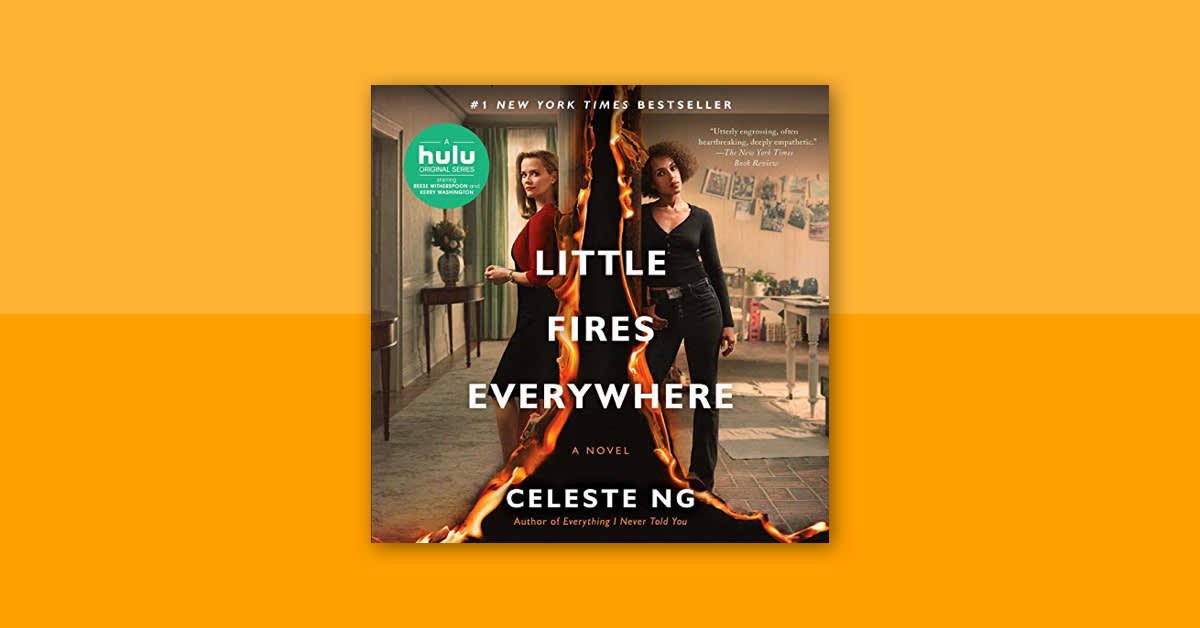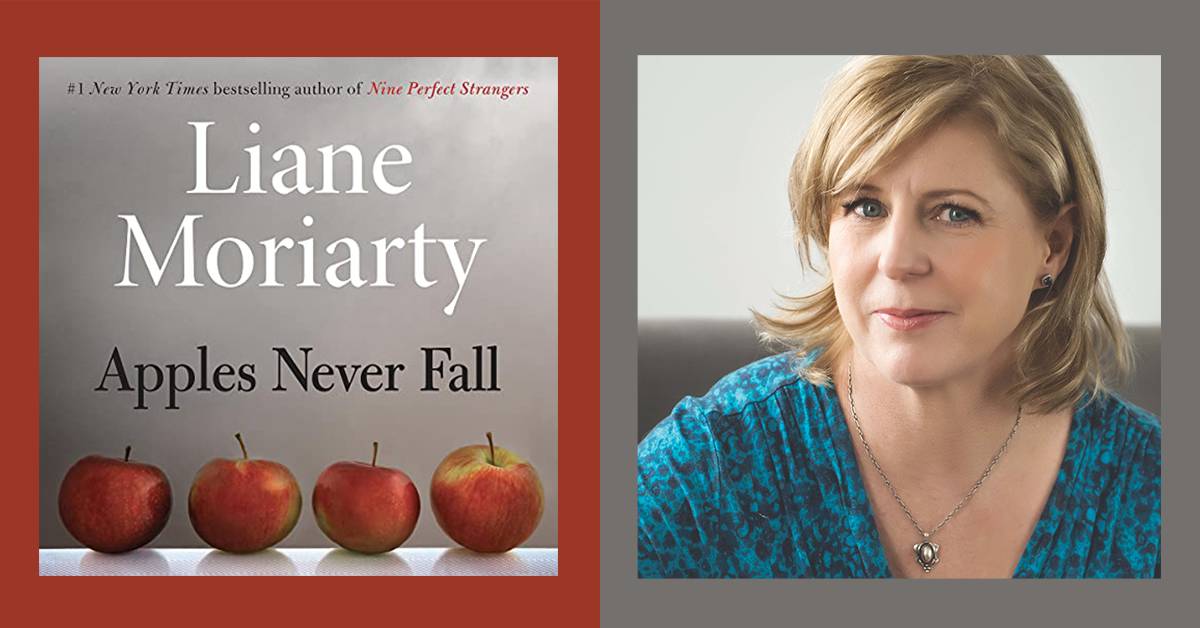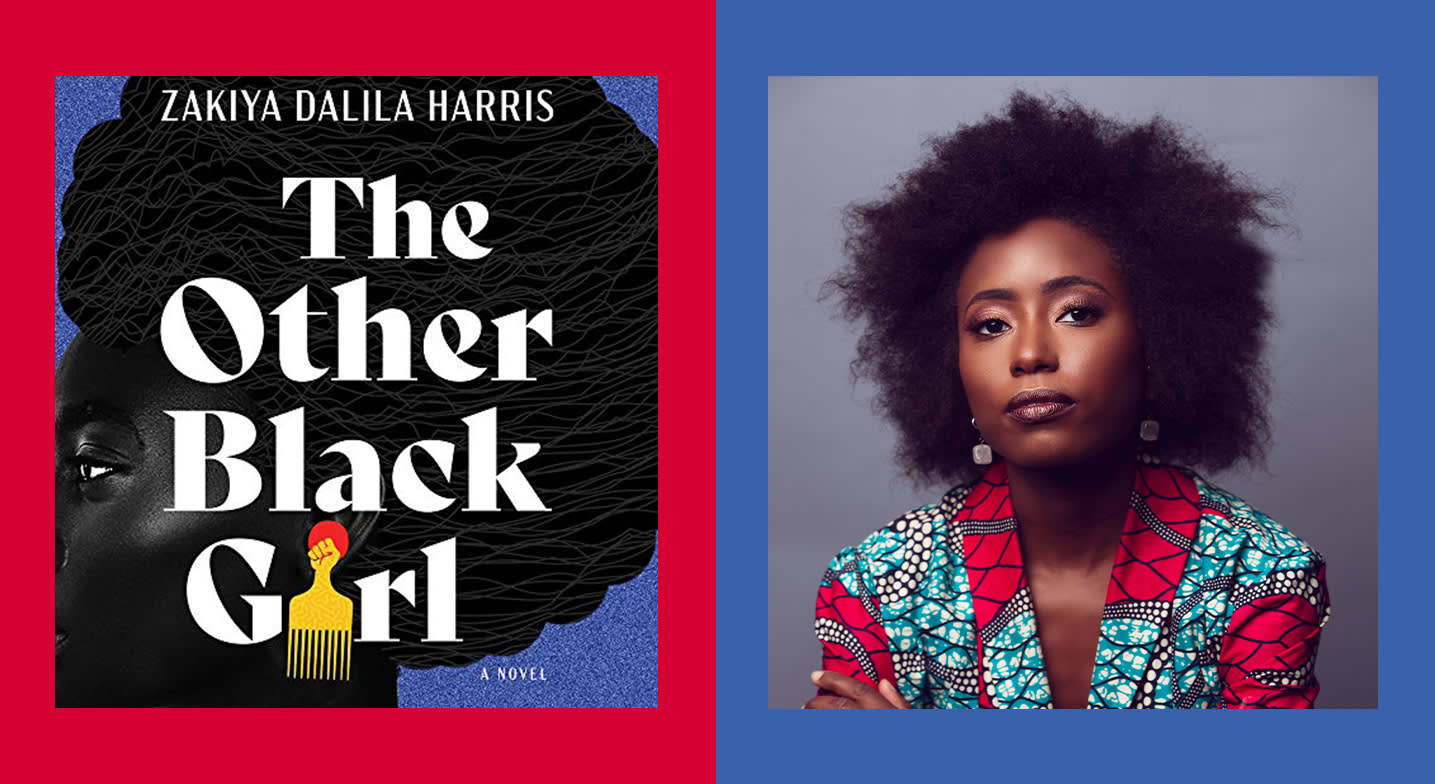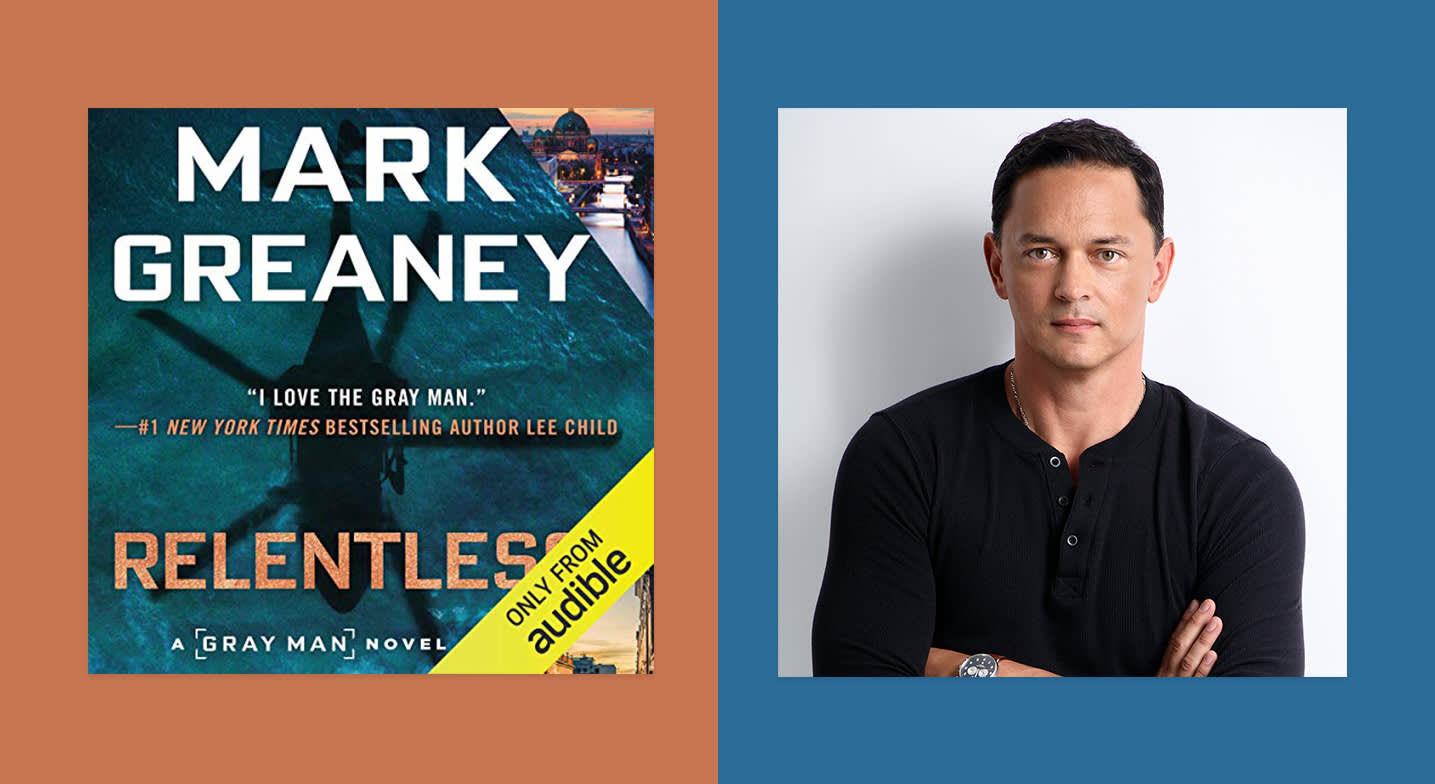The best-selling author of Hold Your Breath, Don't Look for Me, and Emma in the Night reveals an exclusive first look (and listen!) of her highly anticipated new thriller, performed by autism and ADHD acceptance activist Paige Layle.
I was five when my mom lifted me from my bed and into her arms. Before I was even fully awake, she whispered in my ear.
“We’re getting out of this place.”
The fighting must have been going on for a while by then, because they got to the part when one person has stopped yelling and is running away.
My mom carried me as she ran, out of the house where I was born and where she was born—the only home either of us had ever had.
I wrapped my arms around her neck and my legs around her waist as tight as I could so I wouldn’t fall. She was running fast.
Over her shoulder, I saw my grandmother storm after us, and then my grandfather behind her. They were both in their pajamas and my grandmother’s curlers were loose and uneven. This was how I knew it was the middle of the night and that the fight had woken them.
My mom had to put me down at the curb to open the car door, and when she did, my grandmother caught up. She grabbed my shoulders and turned me to face my mom. It was then that I saw she was wearing her going-out clothes and her going-out makeup, which meant the fight must’ve been about her going out after her shift at the diner. She’d been crying, so the makeup was running down her cheeks like railroad tracks, one on each side
of her face.
My grandmother let go and I fell forward into my mom.
“Go ahead and take her!” she screamed. “You’ll never be able to raise a child like that! No. Way. In. Hell.” When screaming was not enough, she spoke with her words broken up, like each one was its own sentence. This was one of the few things I would remember about her.
My mom put me into the car and reached for the seat belt, her black tears dripping on my head as she struggled to make it click, and she told me, “Close your ears! Close your ears!” So I put one hand over each of my ears and pressed hard.
And then she shut the door and ran to the other side while my grandmother kept saying things. Even with my hands over my ears, I could still hear her because my mom hadn’t said to close my eyes and I was watching my grandmother’s wrinkled mouth through the window.
“She. Needs. Help!”
When my mom didn’t answer, my grandmother screamed out her name.
“Eileen!”
And then, after slamming her palms on the roof of the car and peering in my window all the way through to the driver’s seat where my mom was starting the ignition, she screamed to make sure we both heard her: “Whores get what whores deserve!”
The car jerked forward, almost taking my grandmother off her feet, and I couldn’t help but look back at her. My grandfather had stopped at the edge of the lawn and the two of them stood there in their pajamas, watching us drive away.
When we turned the corner, my mom pulled over to find a cigarette in her purse. Before she lit it, she took my face in both of her hands.
“You forget everything Granny said!” she cried.
She lit the cigarette and blew the smoke out the window. The car was moving again and I couldn’t take my eyes off of her face. I had never seen someone act like that before and it felt important to remember it.
“There’s nothing wrong with you, Charlie! Do you hear me?”
I didn’t answer. My brain was busy sorting out the contradiction of her words which said one thing, and the distinct look and sound of fear, which said something completely different. I had never been more confused about a person than I was that night.
“You’re perfect and we’re going to be fine! Wait and see!”
She took another drag, blew the smoke, then gasped with a giant sob.
She repeated those words as we drove around town, looking for a place to park for the night where the police wouldn’t bother us, and I started to say them along with her, like we were singing a song together.
We’re going to be fine … we’re going to be fine … we’re going to be fine.
This is when I made my first rule about people.
Rule Number One: If someone says the same thing over and over again that means they don’t believe it.
***
Four years later, my mom finally explained what made me a child like that.
It was Sunday and on Sundays, she took a long nap in the afternoon while I watched my shows in the kitchen. Sunday was a bad day for shows on cable, so I watched DVDs on the little silver machine she bought me for Christmas.
The day had been strange—strange in a way that made her seem happy. In a Burger King-for-dinner way, even though it was not in our budget. And in a humming-songs-to-herself way. And in a laugh-out-loud-for-no-reason way.
It made me nervous: when my mom got happy like that; it usually meant something bad for me.
At 6:30, after her nap and after Burger King, she went to the bathroom to put on her eyelashes. Humming and perfume slipped beneath the door and into the room where I was alone on our unmade bed, having returned there as soon as we finished eating. I liked being in our bed. It smelled of her and her smell was comforting.
My mom taught me there was no point making a bed unless we had company coming. She taught me other things, too. Important things that I couldn’t learn from my shows or from watching the kids at school. Like when someone asks me what I like, I should answer quickly then ask what they like. Because people like to talk about themselves, and they don’t really want to hear about me. And like when the teacher says to raise my hand if I know the answer, I shouldn’t do it every single time, because that’s annoying.
I was waiting for her to finish in the bathroom and kiss me on the forehead and tell me she’d be back before I knew it and then grab her purse and the nice wool coat that hung in the closet by the door and then turn out every light that I didn’t need and say one last goodbye.
But on this night, at seven o’clock, after she’d put on her eyelashes and perfume, she’d come and sat on the bed with one leg tucked under her and one hanging off the side. She had a familiar smile on her face. It was the smile she had when she told me things I wouldn’t like but that I couldn’t change. Things that I wasn’t allowed to be mad about.
That’s when the bad thing that I knew was coming finally came.
“This is what’s happening,” she said. More words followed about how it might be hard for me because I’ve gotten used to these past four years with it just being the two of us, but there were things about the world that I didn’t understand.
“Please try, Charlie. Try not to be too upset. Try to be a good girl about it.”
I studied her face because being a good girl could mean different things in different situations. If she was sad, I should pinch my eyes together and tilt my head to one side. If she was happy, I should smile so big my teeth showed. I knew my mom very well. Like she said, it had always been just the two of us. But at this moment, I felt scared. I didn’t know what she needed from me to stay happy. And I wanted her to stay happy. I wanted it more than anything.
“I’ve been seeing Dusty for over year and a half,” she said.
My mom counted time in all different increments. Years, months, weeks. Sometimes even in hours or minutes. It’s been four hours since I called Dusty... It’s been three minutes since I texted Dusty… Why won’t he call? Why won’t he answer? I should have known Dusty was going to ruin things.
Tonight, she counted in years, which meant she wanted it to seem like more time than it was.
She went on about how she’d been dating Dusty for over a year and a half, and how that was long enough, and so they were getting married. But that wasn’t all. She grabbed my hands in her hands and squeezed so hard my knuckles cracked.
She was having his baby, she said.
My mind spun in circles with what this meant for me. I was consumed by self-interest—from being nine, but also from something else about me which I was about to learn.
She was right that I was used to sharing this small apartment with her and sleeping in the same bed and that I had liked it because I never worried about scary thoughts or bad dreams, except for the nights she went out with Dusty and I had to go to sleep before she came home.
And the baby? I decided that was good, because I liked babies. But then her words—don’t be too upset—snuck in and around all of my thoughts and squished them like Play-Doh, reshaping them into other thoughts.
She worried that this news would upset me, which meant there was something upsetting about it.
“Do you have any idea how lucky we are?” she asked me. Dusty was a lawyer at his own law firm. He was a good man, she said. The kind who went to church and sat on the town council. He was an important person in this town, but what mattered most was that he was going to marry her and make us his family.
Dusty was 13 years older than my mom, 38 and still not married, so people were starting to talk. He was running out of options, she explained, and I pictured us like the last turkey at the grocery store the night before Thanksgiving.
I also pictured his short, stubby body and double chin and wondered if it would be hard to look at him every day for the rest of my life. Then I told myself to keep that inside my head. That was not a nice thought to have, and I had been practicing at not letting those thoughts
sneak out.
Next came her grand finale. “And we can finally leave this shitty apartment!”
It was not the first time I had heard that word, but it took on a new meaning when she used it to describe our home.
Shit is a word that would stick in my head because it’s used in more ways than any other word I would ever know. Like when something unexpected happens: shit. Oh shit! Holy shit! Or to describe someone: ape shit, full of shit, chicken shit, scared as shit, tough as shit, piece of shit, shit-faced, shithead, up shit’s creek. Or to describe something bad: horseshit, dog shit, bullshit, a pile of, a load of, a world of, a crock of, a shit show or just plain shitty. Then there’s the caveat for when something is good: THE shit. And you can even be in it—deep or up to your eyeballs. Or just inside the place we put it: the shitter. There must be 100 more that I collected as I got older.
But I had never thought of our apartment as shitty, and I realized then that I had missed the signs that my mom did.
Her eyes grew distant like she was seeing a script she’d written play out before her. I watched her lips move as she rambled.
No—we wouldn’t have to live here anymore with the roaches and mice and creepy old man down the hall, and she probably wouldn’t even have to keep working at Dusty’s office, because how would that look if the receptionist and the boss were married? It could have backfired but it didn’t and now she’d gotten us out of this disaster by the skin of her teeth. The disaster that started when love stole her dreams.
When she was done looking through me to her new perfect life with a house and a husband who was a lawyer and a new baby, her face grew reflective and serious. Her pupils narrowed inside the bright blue circles that surrounded them, and her focus returned to me and to this moment on our unmade bed in our shitty apartment.
“Do you know how lucky we are?” she said a second time.
I noticed then how she lifted just one eyebrow and because I knew her face better than I knew my own, I also knew that this meant I was supposed to imagine more words than the ones she was saying.
In the next moment, a dam burst in my brain and I was suddenly drowning in all of those unspoken words.
About the other boyfriends who left her after they met me.
About the endless conferences with my teachers at school.
And, of course, my grandmother’s words the night we escaped—a child like that.
“You’re old enough to understand,” she said.







